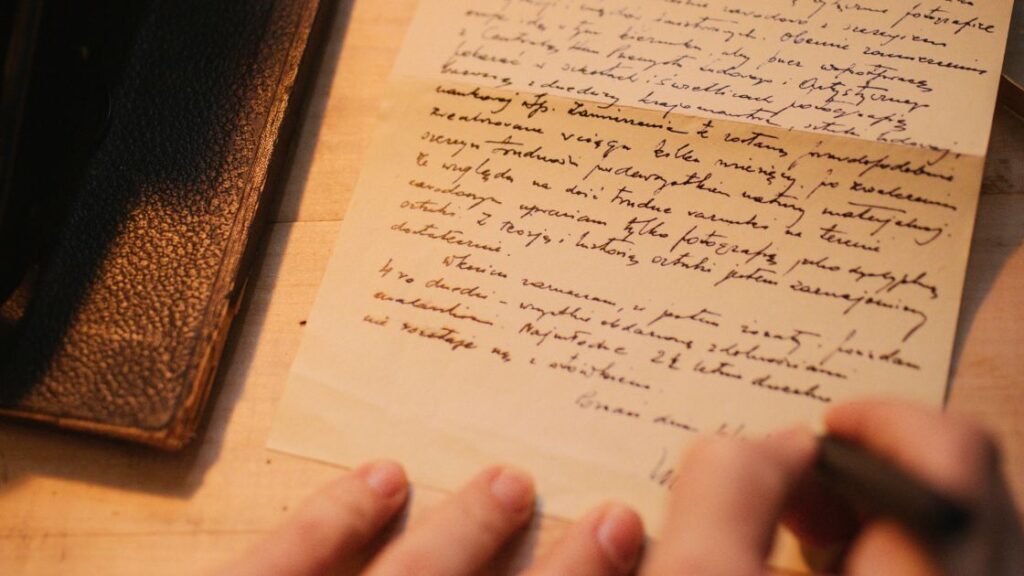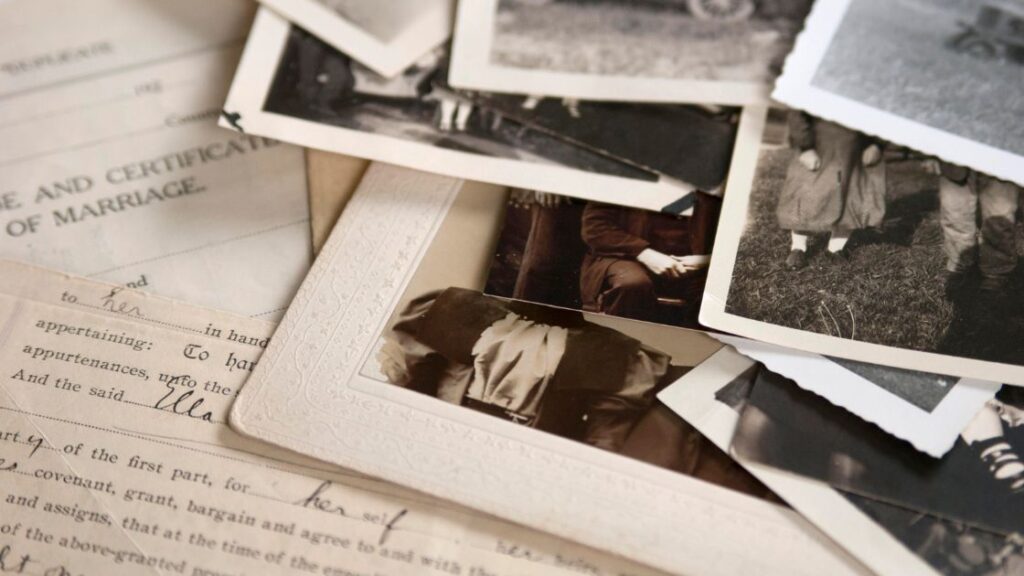Do we write our own stories/histories or do they write us?
Our personal narrative is one of the most powerful forces in our lives. What we remember and retell about our experiences (and the beliefs that form as a result) shapes our reality more than what actually happens. In spite of the many ways life seems to write our stories for us, we are all ultimately the sole authors of our own deeply personal and ever-changing stories. We hold the pen.
My Story. I began examining and rewriting the personal narrative I had been weaving for myself about a decade ago. At the time, I was dealing with the fact that I am a childhood sexual abuse survivor. I had just escaped an abusive marriage and was emotionally and financially destitute. My experiences convinced me I would never be able to recover from all that had happened. I felt like the “facts” of my life had damaged me beyond repair and I would be forced to simply cope with the fallout.
But then in my search for coping strategies I discovered three things:
- Mindfulness meditation revealed the chaos and outright fiction being produced in my head.
- Research on brain function showed me that memory is a complex, and often unreliable part of our human experience.
- Rediscovering writing as a transformative tool provided hope that I could move beyond the “facts” of my life.
What makes us think our personal narrative is a literal, fixed set of experiences?
We often have a false assumption that memory, thoughts, and emotions are fact. We think we can accurately record and retell what occurs, either as history or as story. What science now knows about the brain tells us otherwise. What we think we can call fact is really a complex tapestry of experience, emotion, memory, heart, and spirit. The narratives of our lives are influenced by neurobiology, environment and personal and spiritual development. Our lives are a natural flow of physical and emotional energy that moves along a continuum from one extreme to another and back again. Our brains are not capable of capturing all that accurately.
We get stuck in “problem-saturated” narratives. Negative experiences get extra attention from the brain because it is wired for survival. If we allow our brains to do what they do best– focus on the problems– without including alternative outcomes and positive impacts in the mix, we will literally get stuck in a wiring “rut” in our mental process that makes seeing alternatives difficult.
How we react to that flow of energy plays a crucial role in how we experience it.
How do we begin to shift our personal narrative?
Challenging fixed ideas can help us see other options. First we must consider that accepting the full range of human experience— the pain with the pleasure, the negative with the positive, the light with the dark—might be a way to free ourselves from the patterns and stories that make us feel a victim of life’s circumstances. Once we challenge our fixed ideas, we are free to transform and transcend them.
Understanding how we are wired allows us to overcome conditioning. Neuroscience has shown that our brains are wired to seek pleasure and push away pain as well as to remember physically or emotionally troubling situations over more pleasant memories as a way of avoiding them in the future. Our brains are designed for making quick “walks like a duck” assessments rather than slowing down to get the whole picture. Once we are able to accept that this unique blending of memory and chemistry is geared for physical survival rather than for recording fact, something wonderful happens. We can pause and be curious. Pausing allows us to hear and weave heart and spirit into the narratives of our lives rather than be pushed along by the conditioning of our mind. We see plot choices!
Believing we are the authors of our own personal narrative opens new possibilities. Realizing that science has discovered that our brains are not hard-wired and fixed but can be consciously changed through thought and action allows us to take charge of our own reality.
Our stories are not what happens to us, they are how we write them.
What types of writing are effective for reshaping personal narrative?

There is growing evidence that “Narrative Therapy” and “Expressive Writing” can help transform your personal narrative to promote better health and quality of life. While narrative therapy is a more formal process accomplished while working with a mental health professional, expressive writing can be an informal, free-flowing way of focusing on feelings rather than the details of a traumatic event.
Keep it loose but focus on growth. A study at the University of Iowa indicates that “…the nature of a person’s writing is key to its health effects.” “You need focused thought as well as emotions,” says Susan Lutgendorf, PhD. “An individual needs to find meaning in a traumatic memory as well as to feel the related emotions to reap positive benefits from the writing exercise.”
Researcher James Pennebaker, PhD, of the University of Texas also places emphasis on the importance of an evolving perspective when exploring personal narrative. “People who talk about things over and over in the same ways aren’t getting any better,” he says. “There has to be growth or change in the way they view their experiences.” Evidence of a changed perspective can be found in the language people use, Pennebaker has found. For example, the more they use such cause-and-effect words as “because,” “realize” and “understand,” the more they appear to benefit.
How does expressive writing work and what can it do for wellness?
Expressive writing, the act of putting our deepest thoughts and feelings into words, has been shown to have remarkable psychological and physical health benefits. This practice goes beyond mere journaling; it’s a powerful tool for processing emotions, gaining new perspectives, and even rewiring our brains.
The Science Behind Expressive Writing
Research has consistently demonstrated the positive impact of expressive writing on both mental and physical health. Studies have shown that regular practice can:
- Reduce stress and anxiety
- Improve mood and emotional regulation
- Boost immune system function
- Enhance working memory
- Promote better sleep quality
But how does putting pen to paper (or fingers to keyboard) create these effects? The answer lies in the way expressive writing helps us process and integrate our experiences.
When we engage in expressive writing, we activate multiple areas of the brain, including those responsible for language, memory, and emotion. This integration allows us to:
- Create coherent narratives from fragmented memories
- Gain emotional distance from difficult experiences
- Identify patterns in our thoughts and behaviors
- Develop new insights and perspectives
Over time, this process can actually change the way our brains perceive and respond to events, leading to more positive outcomes and greater resilience.
Want to know more about the science and benefits of expressive writing? Read this article for a full discussion: “Emotional and physical health benefits of expressive writing” by Karen A. Baikie & Kay Wilhelm
Getting Started with Expressive Writing
Ready to harness the power of expressive writing for your own personal growth? Here are some tips to help you begin:
- Set aside dedicated time: Aim for 15-20 minutes, 3-4 times a week.
- Choose a private, comfortable space: Ensure you feel safe to express yourself freely.
- Write continuously: Don’t worry about grammar or spelling; focus on getting your thoughts out.
- Dive deep: Explore your deepest thoughts and feelings about experiences or challenges.
- Be honest: Write for yourself, not for an audience.
- Experiment with prompts: Try questions like “What am I feeling right now?” or “What would I do if I weren’t afraid?”
- Reflect on your writing: After each session, take a moment to consider any new insights or perspectives you’ve gained.
Remember, the goal of expressive writing isn’t to create a masterpiece, but to engage in a process of self-discovery and growth. By regularly practicing this powerful technique, you can begin to rewrite your personal narrative, leading to improved well-being and a more positive outlook on life.
More discussion and tips available at: Health Benefits of Expressive Writing + Tips to Get Started by Iryna Horkovska.
Can writing about family history enrich personal narrative?

While expressive writing helps us explore our inner landscape, delving into family history offers a unique opportunity to place our personal narrative within a broader context. Researching and writing about our ancestors can provide profound insights into our identity, values, and the forces that have shaped us.
Connecting Past and Present
Exploring family history allows us to:
- Understand inherited traits and tendencies
- Recognize patterns across generations
- Appreciate the cultural forces that influenced our upbringing
- Gain perspective on our place within a larger historical narrative
By weaving together personal experiences with ancestral stories, we create a richer, more nuanced understanding of ourselves and our place in the world.
The Synergy of Family History and Expressive Writing
Combining family history research with expressive writing can be particularly powerful:
- Use expressive writing to process emotions that arise during genealogical research
- Write imaginatively about ancestors’ lives to develop empathy and understanding
- Reflect on how family stories have influenced your own beliefs and behaviors
- Explore how your personal narrative fits into (or diverges from) your family’s larger story
This combination of factual research and emotional exploration can lead to profound personal growth and self-awareness.
Benefits of Family History Research for Personal Development
- Identity Formation: Understanding your family’s past can help solidify your sense of self and belonging.
- Resilience Building: Learning about ancestors who overcame hardships can inspire and motivate you in facing your own challenges.
- Cultural Appreciation: Discovering your heritage can foster a deeper connection to your cultural roots.
- Improved Intergenerational Relationships: Researching family history often involves talking with older relatives, strengthening bonds and understanding.
- Enhanced Empathy: Exploring the lives of ancestors can increase your ability to see situations from different perspectives.
Getting Started with Family History Research
- Begin with what you know: Write down family stories you’ve heard and details about relatives you remember.
- Interview living relatives: Use expressive writing techniques to prepare questions and process the information you gather.
- Explore online resources: Websites like Ancestry.com or FamilySearch.org can help you trace your family tree.
- Visit local archives or historical societies: These can provide rich context about the places your ancestors lived.
- Keep a research journal: Use expressive writing to reflect on your discoveries and their personal significance.
- Create a family narrative: Combine factual information with imaginative writing to bring your family’s story to life.
By intertwining family history research with expressive writing, you can create a personal narrative that is both deeply individual and richly contextual. This process not only enhances self-understanding but also fosters a sense of connection to something larger than ourselves – a powerful tool for personal growth and development.
Recapping the Process
Use Writing to Dispel Misconceptions
Spend some time exploring and understanding the shortcomings of memories, thoughts, and feelings. As you write, can you begin to acknowledge and truly believe that it’s not what happens to us, but how we perceive and talk about events that most significantly influences personal narrative?
Use Writing to Uncover “Problem Saturation”
Pay attention to the way your personal narrative is affected by hyper-focusing on negative or problematic situations. Are your thoughts and reactions based on fixed ideas that can be reexamined? Instead of leaning into assumptions and previous experiences to assess situations, can you pause and be curious about other possible interpretations and solutions instead?
Use REWRITING to Explore Choices
Use expressive writing exercises to uncover unconscious or “knee-jerk” feelings and review other options within the same situations. Writing is a great way to try on a new way of seeing and navigating your life and then rewrite your narrative accordingly.
Use Writing About FAMILY HISTORY to Increase Understanding
Digging into family history is an additional way to deepen your insights into personal narrative. Investigating ancestry and cultural heritage and then writing about how these connections make us feel, often opens the door to profound insights about identity, values, and patterns that have unconsciously shaped our personal narrative.
Embrace ALL Experiences as a Gift
Using writing to integrate positive and negative emotions for a more holistic perspective on our life experiences can be a tremendous gift to ourselves. By embracing the sanity and compassion of knowing and embodying ALL of who we are—we can accept our traumatic experiences and negative patterns as a gift of growth and not something to be erased. By accepting the role of architect and hero of our own tale, we venture beyond the stories we have told ourselves and awaken to a brand new reality!
For more on why writing can be beneficial to mental and physical health read:
Writing to heal by BRIDGET MURRAY
For tips on including family history in your writing check out these blog posts:
Journaling Ideas: Connect with Your Ancestors to Understand Yourself Better
Making Family Stories More Exciting with Sensory Details
Follow along as I have learned to rewrite my own personal narrative HERE.


